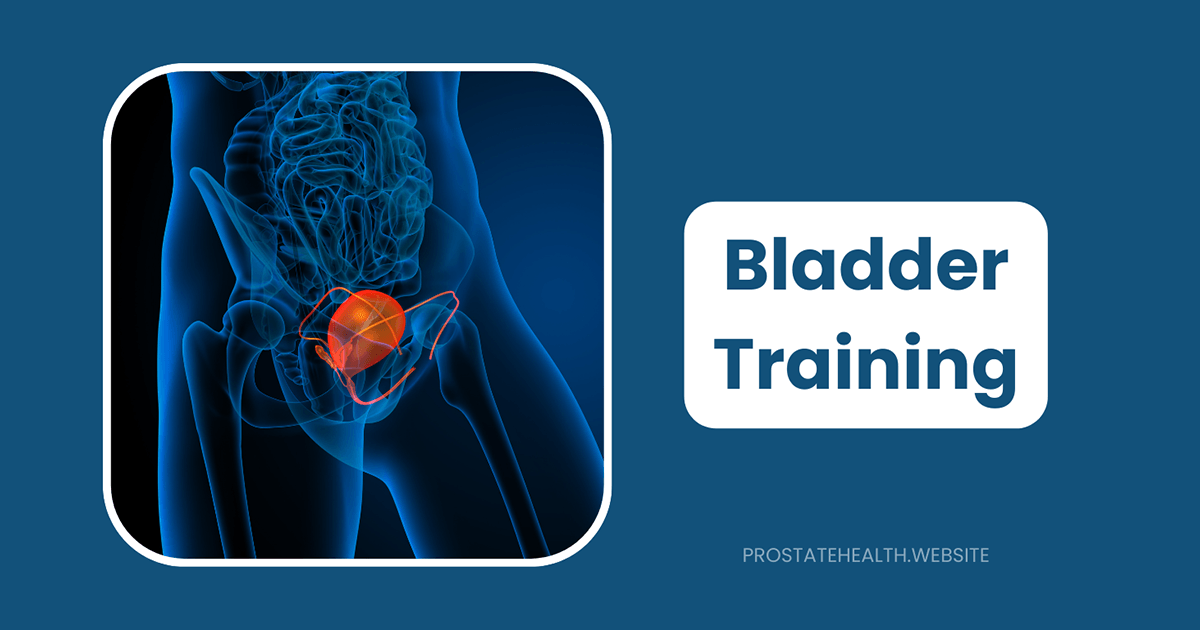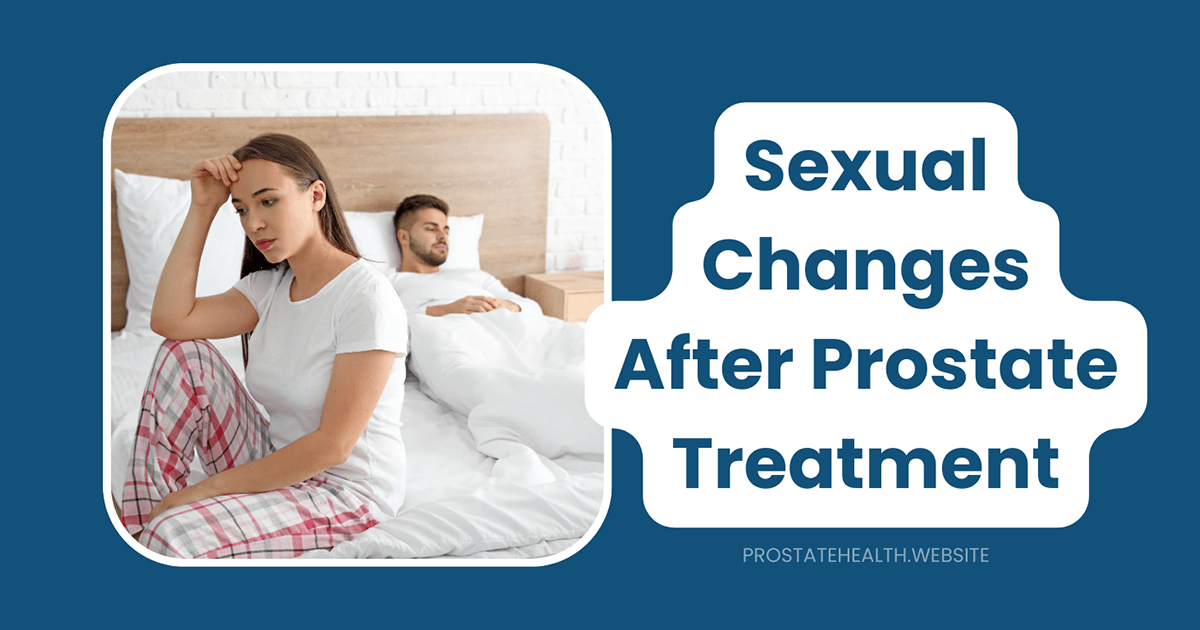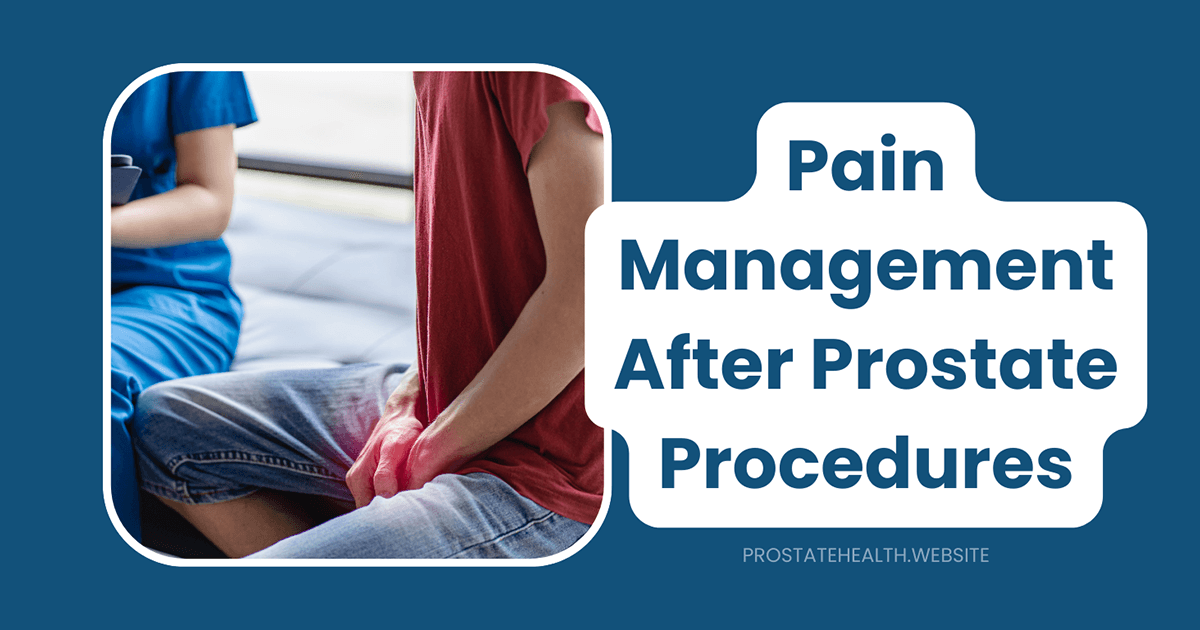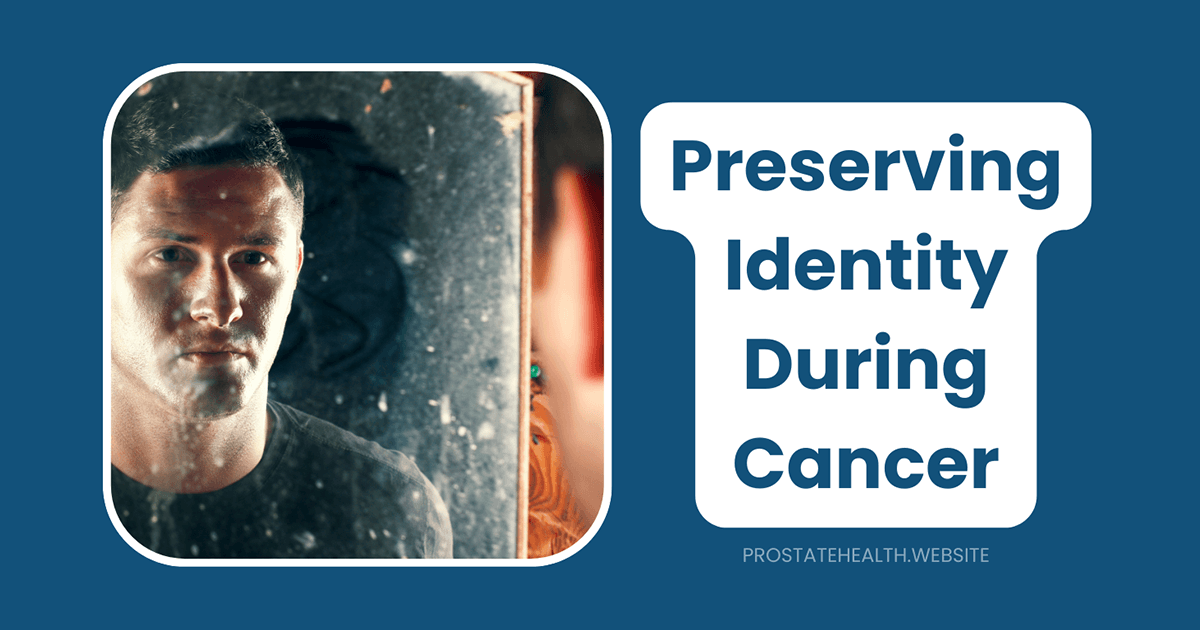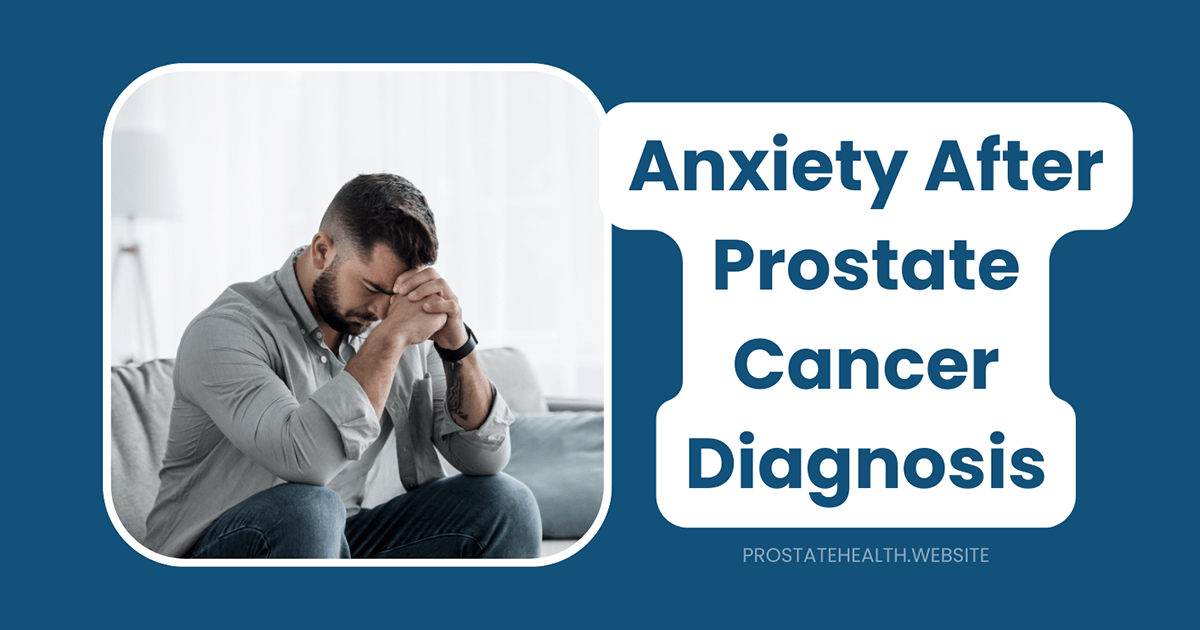Redefining Masculinity After Prostate Cancer Treatment
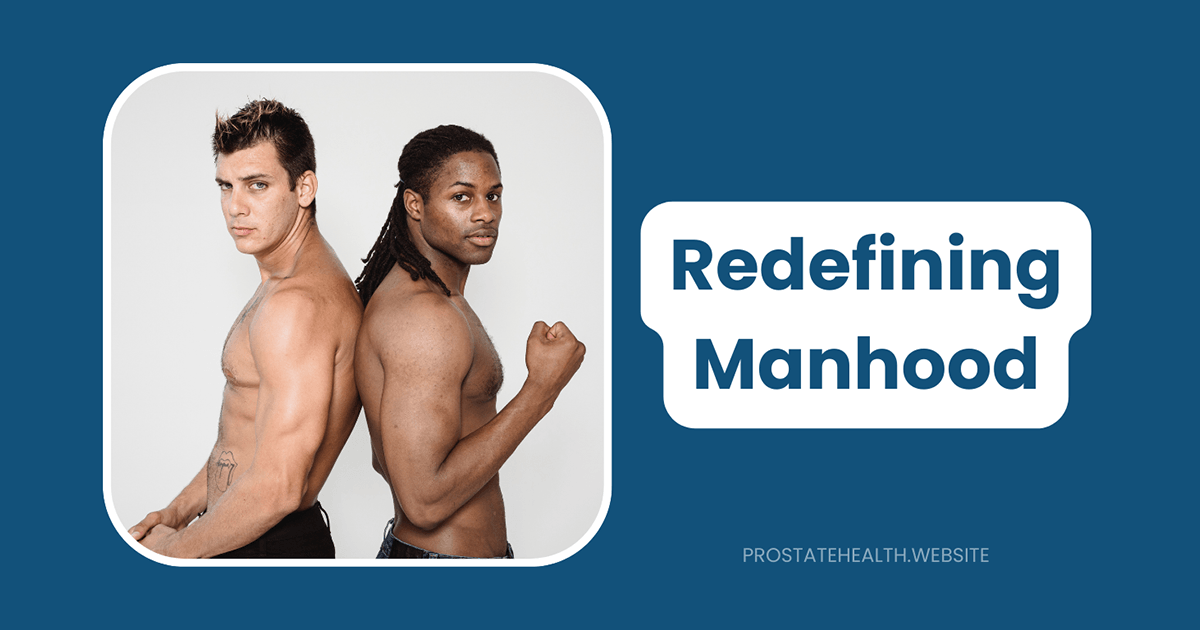
When James, 62, looked in the mirror six months after his prostate cancer treatment, he saw the same face staring back at him. But something profound had changed.
“I didn’t feel like the same man anymore,” he recalls. “The things I had always associated with being a man—sexual performance, physical strength, never showing weakness—suddenly seemed out of reach. I had to ask myself: If I’m not that man anymore, who am I?”
James’s experience resonates with countless men who have undergone prostate cancer treatment. The side effects—erectile dysfunction, urinary incontinence, body changes from hormone therapy—don’t just challenge physical health. They strike at the core of how many men define themselves.
But here’s the powerful truth that emerges from both research and personal stories: this challenging journey often leads to a more authentic, flexible, and fulfilling definition of masculinity. This article explores how men are redefining what it means to be a man after prostate cancer treatment, offering insights and practical approaches for this transformative process.
The Challenge to Traditional Masculinity
To understand the impact of prostate cancer treatment on masculine identity, we must first recognize the traditional notions of masculinity that many men have internalized:
Physical Strength and Performance
Many men grow up equating masculinity with physical prowess—being strong, capable, and in control of their bodies. Prostate cancer treatment can challenge this through:
- Fatigue during and after treatment
- Muscle loss from hormone therapy
- Changes in physical capabilities and endurance
Sexual Function and Virility
Perhaps no aspect of traditional masculinity is more deeply ingrained than sexual performance. Research shows that many men view “a capacity for penetrative sexual activity as central to masculine identity.” Treatment side effects directly challenge this through:
- Erectile dysfunction affecting up to 85% of men after radical prostatectomy
- Reduced libido during hormone therapy
- Changes in orgasm sensation and ejaculation
Emotional Stoicism
Traditional masculinity often dictates that men should remain emotionally controlled and self-reliant. Yet prostate cancer forces men to:
- Confront vulnerability and uncertainty
- Depend on others for care and support
- Process complex emotions like fear, grief, and loss
Urinary Control
Something as basic as urinary control—rarely discussed but deeply assumed—becomes a significant issue for many men after treatment:
- Up to 20% experience some degree of urinary incontinence after surgery
- The need to use pads or other management strategies
- Planning activities around bathroom access
“The first time I leaked urine during a business meeting, I wanted to disappear,” shares Thomas, 58. “It felt like such a fundamental loss of control and dignity. Something I had taken for granted since I was a toddler was suddenly unreliable.”
The Psychological Impact
The challenges to masculine identity can have profound psychological effects. Studies indicate that up to 60% of men experience significant mental distress during prostate cancer diagnosis and treatment.
Common psychological responses include:
Grief and Loss
Many men experience a genuine grieving process for aspects of themselves they feel they’ve lost:
- Mourning changes in sexual function
- Grieving a sense of invulnerability
- Processing the loss of certain life expectations
Identity Confusion
When long-held beliefs about masculinity are challenged, many men experience:
- Questioning of their male identity
- Uncertainty about their role in relationships
- Searching for new ways to define themselves
Shame and Embarrassment
The visible and invisible changes after treatment can trigger:
- Reluctance to discuss symptoms with others
- Withdrawal from intimate relationships
- Avoidance of social situations where symptoms might be noticed
“I stopped going to my weekly basketball game,” admits Robert, 65. “I was afraid of leaking urine during play, but more than that, I didn’t feel like ‘one of the guys’ anymore. I couldn’t perform sexually, I was gaining weight from the hormone therapy—I felt like a fraud of a man.”
Pathways to Redefinition
While the challenges are real, research and personal accounts reveal multiple pathways through which men successfully redefine their sense of masculinity after prostate cancer treatment:
Expanding the Definition of Masculinity
Many men find freedom in broadening what “being a man” means to them:
- Recognizing that vulnerability requires courage
- Valuing wisdom and emotional depth alongside physical attributes
- Embracing a more flexible view of manhood that isn’t defined by sexual performance
Michael, 70, reflects: “Before cancer, I thought being a man was about being strong, never showing weakness, always being ready for sex. Now I see that real strength is being honest about your struggles, showing up for the people you love even when you’re not at your best.”
Finding New Sources of Masculine Affirmation
Research published in 2022 found that men often discover alternative ways to affirm their masculinity:
- Physical activity and exercise: Regaining a sense of control and strength
- Mentorship roles: Sharing wisdom and experience with others
- Intellectual pursuits: Developing knowledge and expertise
- Creative expression: Finding new outlets for passion and energy
“I started swimming three times a week,” shares William, 59. “It’s different from the weightlifting I used to do, but it gives me that same feeling of physical accomplishment. And I’ve become a mentor to younger men at work—that leadership role fulfills something important in me.”
Reframing Sexual Intimacy
Many men and their partners discover a broader, richer experience of intimacy:
- Focusing on emotional connection and sensual touch
- Exploring non-penetrative forms of sexual pleasure
- Using adaptive approaches and aids when desired
- Discovering that sexual satisfaction can take many forms
Normalizing Through Connection
Connecting with others who understand the experience can be transformative:
- Support groups provide validation and reduce isolation
- Hearing others’ stories offers perspective and hope
- Sharing experiences helps process emotions and find meaning
- Learning practical coping strategies from peers
“The turning point for me was joining a survivors’ group,” says Carlos, 67. “Hearing other men—successful, confident men—talk openly about incontinence and erectile dysfunction made me realize I wasn’t less of a man because of these issues. We’re all navigating this together.”
Practical Strategies for Redefining Masculinity
Beyond philosophical shifts, men report specific practical approaches that help them reconstruct a positive masculine identity:
Physical Approaches
Exercise and Physical Activity
Studies show that men who remain physically active after prostate cancer treatment report better psychological outcomes and stronger masculine identity:
- Focus on what your body can do rather than what it can’t
- Adapt activities to current capabilities
- Set progressive goals to experience achievement
- Consider working with a trainer experienced in cancer recovery
Managing Treatment Side Effects Proactively
Taking control of side effects can restore a sense of agency:
- Work with healthcare providers on erectile dysfunction treatments
- Learn pelvic floor exercises to improve continence
- Address body composition changes through nutrition and exercise
- Use available medical interventions as tools rather than seeing them as failures
Psychological Approaches
Cognitive Reframing
Changing thought patterns about masculinity can be powerful:
- Challenge black-and-white thinking about what makes someone “a real man”
- Recognize that all men face changes and limitations as they age
- Focus on the many masculine qualities unaffected by cancer treatment
- View adaptation as a strength rather than a weakness
Mindfulness and Acceptance
Practices that foster present-moment awareness help many men:
- Mindfulness meditation to reduce rumination about losses
- Acceptance of changed realities without judgment
- Gratitude practices focusing on what remains rather than what’s lost
- Self-compassion exercises to counter shame and self-criticism
“Learning mindfulness changed everything for me,” shares David, 64. “Instead of constantly comparing myself to who I was before cancer, I could be present with who I am now. There’s a lot less suffering in that.”
Relational Approaches
Open Communication
Honest conversations with partners and loved ones can transform the experience:
- Express feelings about changes in identity and function
- Listen to partners’ perspectives and concerns
- Collaborate on finding new ways to connect intimately
- Allow vulnerability to deepen rather than threaten relationships
Community Engagement
Finding meaningful ways to contribute to others often reinforces a positive sense of masculinity:
- Volunteer work that leverages your skills and experience
- Mentoring younger men or other cancer patients
- Advocacy work related to prostate cancer awareness
- Community leadership roles that provide purpose and connection
“After treatment, I started volunteering with a literacy program for disadvantaged kids,” says James, whom we met at the beginning. “Being a positive male role model for these boys gave me a new way to express my masculinity that had nothing to do with sexual performance or physical strength.”
Cultural and Generational Considerations
How men redefine masculinity after prostate cancer is influenced by cultural background, generation, and individual circumstances:
Cultural Factors
Different cultures have varying expectations around masculinity:
- Some cultural backgrounds may place greater emphasis on male virility and fertility
- Religious perspectives can influence how men view changes in sexual function
- Cultural attitudes about discussing health issues affect willingness to seek support
- Family expectations may create additional pressure or support
Generational Differences
Age and generation significantly impact how men approach this redefinition:
- Younger men (under 60) often report more distress about sexual changes
- Older men may more readily accept changes as part of aging
- Generational attitudes about masculinity vary widely
- Younger generations may have more flexible views of gender roles
Individual Circumstances
Personal factors create unique contexts for each man:
- Relationship status and quality
- Previous experiences with illness or adversity
- Pre-existing beliefs about masculinity
- Other aspects of identity that provide meaning and purpose
Partners’ Perspectives
Partners play a crucial role in how men redefine masculinity after prostate cancer treatment:
The Impact on Partners
Partners experience their own challenges:
- Concerns about the man’s health and wellbeing
- Adjustments to changes in sexual intimacy
- Navigating new roles as caregivers
- Managing their own emotional responses
How Partners Can Help
Supportive partners can facilitate positive redefinition through:
- Affirming the man’s value beyond sexual performance
- Expressing continued attraction and desire for connection
- Collaborating on finding new forms of intimacy
- Encouraging open communication about feelings and needs
Maria, whose husband underwent prostate cancer treatment three years ago, shares: “I made sure he knew that I loved him for who he is, not what his body could or couldn’t do. We explored new ways to be intimate, and honestly, our connection is deeper now because we’ve had to be more intentional and communicative.”
Professional Support
Various professionals can provide valuable support in this journey:
Mental Health Professionals
- Psychologists and therapists specializing in men’s issues or cancer recovery
- Sex therapists with expertise in cancer-related sexual changes
- Support group facilitators trained in addressing masculinity concerns
Medical Specialists
- Urologists who address physical symptoms while acknowledging identity concerns
- Sexual medicine physicians specializing in post-cancer sexual health
- Rehabilitation specialists focusing on physical function recovery
Integrative Practitioners
- Exercise physiologists who can design appropriate physical activity programs
- Nutritionists addressing body composition changes
- Mindfulness instructors teaching stress reduction techniques
“Working with both a therapist and a sexual medicine specialist made a huge difference,” reflects Thomas. “The medical doctor helped with the physical aspects of ED, while the therapist helped me process what these changes meant for my identity as a man. I needed both approaches.”
The Transformative Potential
While no one would choose the challenges of prostate cancer, many men report that the process of redefining masculinity leads to unexpected growth:
A More Authentic Masculinity
Many men discover a more genuine expression of manhood:
- Less constrained by societal expectations
- More aligned with personal values
- Integrating vulnerability as a strength
- Balancing independence with interdependence
Deeper Relationships
The journey often transforms connections with others:
- More honest communication with partners
- Greater emotional intimacy
- Authentic male friendships based on real sharing
- Meaningful mentoring relationships with younger men
Expanded Sense of Purpose
Many men find new sources of meaning:
- Advocacy for prostate cancer awareness
- Supporting other men through similar challenges
- Pursuing previously neglected interests and passions
- Contributing to community in new ways
“I wouldn’t wish prostate cancer on anyone,” says Michael, “but I can honestly say that the man I am today—more open, more connected to my feelings, more present with my wife and children—is a better man than I was before. Cancer took some things from me, but it also freed me from limitations I had placed on myself.”
Resources for the Journey
Several resources can support men in redefining masculinity after prostate cancer:
Support Organizations
- Us TOO International – Peer-to-peer support network
- ZERO – The End of Prostate Cancer – Support groups and resources
- Malecare – Support specifically for gay and bisexual men with prostate cancer
Books and Reading
- “Man to Man: Surviving Prostate Cancer” by Michael Korda
- “Invasion of the Prostate Snatchers” by Ralph Blum and Mark Scholz, MD
- “The Masculine Self” by Christopher Kilmartin
Online Communities
- Prostate Cancer Foundation’s Community Conversations
- Cancer Survivors Network
- Health Unlocked Prostate Cancer Community
Conclusion: A New Chapter of Manhood
Redefining masculinity after prostate cancer treatment isn’t about resignation or settling for less. It’s about discovering a more authentic, flexible, and resilient sense of what it means to be a man—one that can withstand physical changes and limitations because it’s grounded in deeper values.
As James, whom we met at the beginning of this article, reflects three years after his treatment: “I wouldn’t say I’m less of a man now—I’d say I’m more of a human. I’ve let go of trying to live up to some impossible standard of manhood and instead focused on being authentic, being connected, and making a difference in my own way. There’s freedom in that.”
This journey of redefinition isn’t easy, but it offers the possibility of emerging with a masculinity that is more authentic, connected, and fulfilling than before—a masculinity defined not by physical performance but by character, wisdom, and the courage to evolve.


